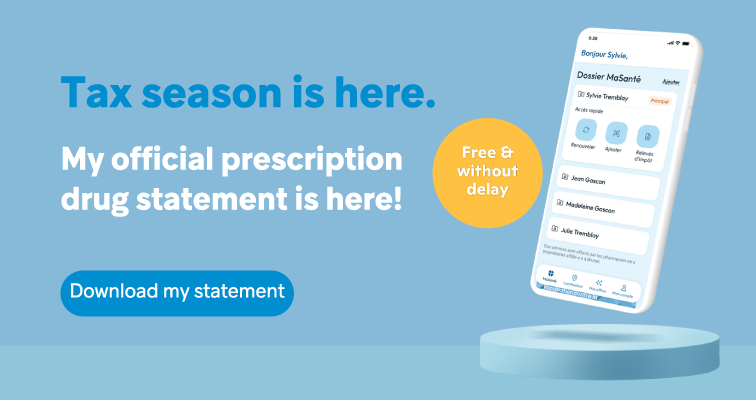Omega-3s are found in certain foods, as well as being available in supplement form. They contribute to the proper functioning of several organs. Here’s what you need to know about omega-3s.

What are the benefits of omega-3s?
Numerous studies have confirmed that omega-3s are especially important for cardiovascular health, as they help prevent certain heart diseases. They are also known to support healthy lung, brain, and eye function.
The Greenlandic Inuit appear to have discovered the key to maintaining a healthy heart long before North Americans. Despite their high-fat diet, they’ve historically had a very low incidence of cardiovascular disease. The secret? You guessed it—omega-3s. Specifically, those found in the fish that are a dietary staple of this Indigenous community.
Which foods are rich in omega-3?
There are three types of omega-3 fatty acids: alpha-linolenic acid (ALA), docosahexaenoic acid (DHA), and eicosapentaenoic acid (EPA). Omega-3s are considered essential fats because our bodies cannot manufacture them. Also called “good” fats, they must be consumed as part of our diet.
- ALA comes mainly from plant sources such as flaxseed, walnuts, chia seeds, hemp, canola oil, and soybean oil.
- DHA and EPA are found mainly in fatty fish and seafood, including salmon, herring, mackerel, sardines, tuna, trout, and rainbow trout.
Is it a good idea to take omega-3s every day?
By far the best way to consume omega-3s is by natural means, namely by adopting a balanced diet. It’s recommended to eat fish (preferably fatty fish) two to three meals a week to get sufficient DHA and EPA. As far as ALA, you can add nuts to things like yogurt, salad, and muffin batter and use vegetable oils to cook with and make salad dressings.
What are the symptoms of omega-3 deficiency?
There are a number of physical and psychological symptoms associated with omega-3 deficiency. The first visible signs are often dry skin and dull hair.
Impaired concentration and unusual fatigue can also occur. In some cases, the body may indicate a deficit through more frequent joint pain or increased susceptibility to infection.
In addition, individuals may experience vision problems such as dry eye or increasing visual discomfort. A health care professional can assess your situation and recommend blood tests to confirm the diagnosis. This is especially relevant to vegetarians, vegans, and people with digestive problems.
Don’t hesitate to ask your pharmacist for advice on whether to see a doctor, as the symptoms above can be caused by various conditions.
Are omega-3 supplements worth taking?
Available in pharmacies, omega-3 supplements can help you maintain good overall health if you don’t get enough good fats in your diet. They have also proven effective in the prevention and treatment of certain conditions that need to be diagnosed and regularly assessed by a doctor. They should therefore only be used with your doctor’s approval and should in no way replace your usual medication. Omega-3 supplements can be beneficial to people with the following health problems:
- Certain heart diseases
- Hypertension (high blood pressure)
- High triglycerides (a type of fat in the blood)
- Alzheimer’s disease
- Depression
- Rheumatoid arthritis
If you decide to start taking omega-3 supplements, it may be several weeks before you begin to see the benefits. Talk to your pharmacist to find out if they’re right for you.
Are there any side effects?
Omega-3 supplements are generally well tolerated. Any side effects tend to be related to digestion (e.g., burping, bad breath, nausea, heartburn). Here are a few tips to prevent these unwanted symptoms:
- Start by taking one capsule a day, then gradually move up to the recommended dose.
- Take your omega-3 supplement with food.
- Opt for enteric-coated capsules, which are easier to digest.
- Avoid taking your supplement with irritating foods or beverages, such as coffee, citrus juice, or tomato juice.
How do I choose the right product?
- Your pharmacist can tell you about the different formulations of omega-3 supplements (e.g., varying proportions of omega-3 and omega-6) and the types of omega-3s they contain. The minutiae of ingredient lists can be confusing, so don’t be afraid to ask for clarification and for help choosing the right supplement for your needs.
- Bear in mind that omega-3 capsules tend to be quite large. If you have difficulty swallowing them, look for liquid supplements, chewable tablets, or smaller capsules (mini format).
- Avoid cod liver oil. While highly touted for a time, it contains far too much vitamin A, which accumulates in our fat and can be toxic.
- The recommended dose of omega-3 varies according to the reason for supplementation. Consult your pharmacist or physician to see how much you should be taking.
- Choose a recognized brand, from a manufacturer with a proven track record of product quality, integrity, and professional ethics. Ask your pharmacist for advice.
Yes, omega-3s are good for you! The best way to get enough of them is to eat fatty fish two or three times a week and to incorporate omega-3-rich oils and seeds into your diet. Omega-3 supplements are effective against some diseases, but they’re not a substitute for a healthy diet and good lifestyle habits. So dust off your cookbooks and see what inspires you! Maybe you’ll find a few fish recipes to add to your repertoire.
You may also be interested in these articles
8 answers to your questions about vitamins and minerals
Last updated on April 8, 2025

